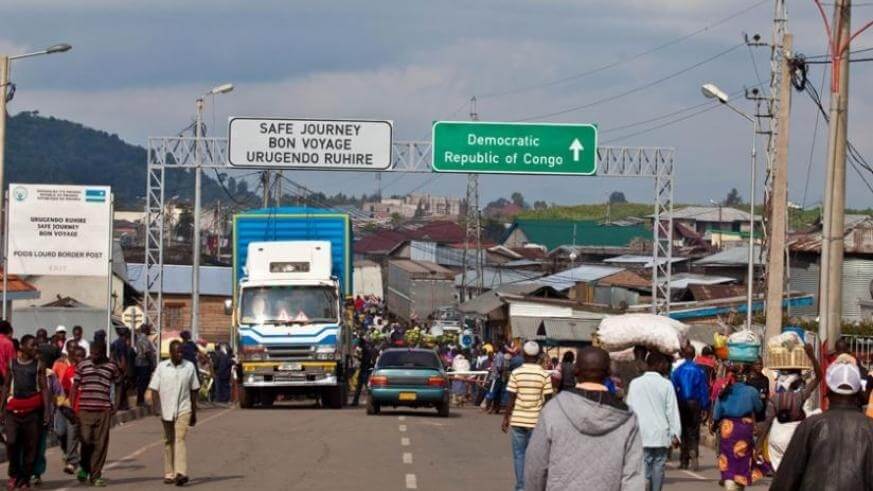
Our Projects are
Transforming African Trade
Quick Contacts
2nd Floor, Fidelity Insurance Centre Waiyaki Way, Westlands

Countries around the world engage in trade between themselves in various ways including across their physical borders.
However, adjustments at border points may determine both volume and speed of trading for a country and resultant economic performance compared to its neighbour.
Trading across borders is a parameter the World Bank annually uses to assess countries in their ease of doing business.
In the most recent 2020 Doing Business report, 190 economies including Rwanda were assessed.
Doing Business records the time and cost associated with logistical process of exporting and importing goods.
It measures time and cost (excluding tariffs) associated with three sets of procedures; documentary compliance, border compliance and domestic transport—within the overall process of exporting or importing a shipment of goods.
Rwanda, which fetched an overall score of 76.5% emerged in the 38th position, globally.
Under the parameter of trading across borders, Rwanda scooped 75% and compared to all economies assessed, the country is ranked 88th.
However, Rwanda is determined to make further adjustments under this parameter to remove all bottlenecks in its cross border trading with neighbouring economies.
The country has so far reduced procedures for declaration and automation of clearances.
According to Edith Mutesi, a Customs officer at Rwanda Revenue Authority, the country has pursued several reforms including adoption of Electronic Single Window System, so far reduced procedures for declaration and automation of clearances.
“Declaration/clearance have reduced from 7 days to only 30 hours,” Mutesi says.
For example this adjustment has significantly affected the turnaround time of trucks which has been reduced from 21 days to 6 days between Mombasa port in Kenya to Kigali capital.
While turnaround time has been reduced from 18- 4 days from Dares-salaam to Kigali.
For Rwanda, Cross border trade is conducted with Burundi, the Democratic Republic of Congo (DRC), Tanzania and Uganda.
The country’s vision for Cross-Border Trade Strategy is dynamic and diversified trade with neighbouring countries, creating jobs and income in both the formal and informal sectors and improving the trade balance.
Rwanda has in the past 5 years embarked on construction of cross-border markets along key borders linking Rwanda to its four neighbours.
Akanyaru, Nemba and Ruhwa border, linking Rwanda and Burundi, Rusizi II and Nyamasheke, Cyanika on the border with Uganda, Rubavu and Rusizi cross-border markets.
Source: Taarifa
Disclaimer: The views and opinions expressed in this article are those of the authors and do not necessarily reflect the official policy or position of TradeMark Africa.